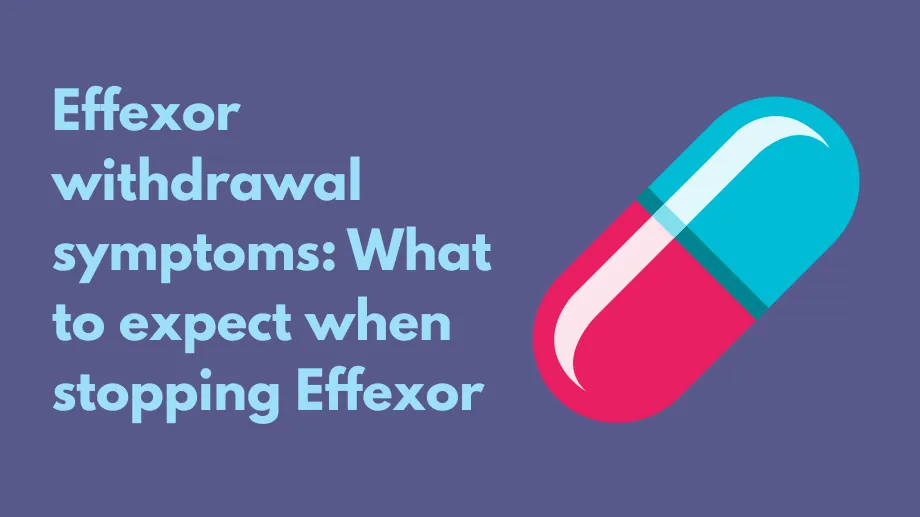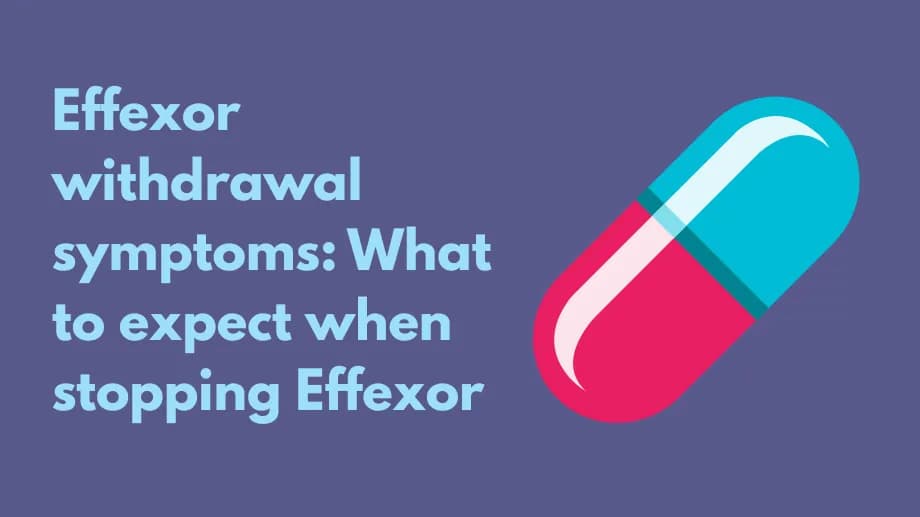Effexor withdrawal symptoms: What to expect when stopping Effexor

p>Stopping Effexor, or venlafaxine, without a proper plan can lead to withdrawal symptoms due to its quick clearance from the body. Understanding how to manage these symptoms is crucial for those discontinuing its use.
What is Effexor?
Effexor, available in immediate-release and extended-release forms, is a serotonin-norepinephrine reuptake inhibitor (SNRI) used to treat a range of mental health conditions.
Understanding Effexor Withdrawal
Withdrawal symptoms can occur when stopping Effexor suddenly, impacting the brain’s chemical balance. Gradually tapering off is recommended to minimize these effects.
Symptoms of Effexor Withdrawal
Symptoms may include irritability, nausea, dizziness, sweating, nightmares, and potentially severe mood swings or depression.
Duration of Withdrawal Symptoms
While withdrawal symptoms can start within hours of the last dose and may persist for weeks or months, they vary widely based on individual factors.
Shop Medications
Proper Discontinuation of Effexor
Tapering the dose gradually, under medical supervision, helps mitigate withdrawal symptoms and protect patient well-being.
Managing Withdrawal Symptoms
Tips for managing symptoms include adequate sleep, staying active, eating a balanced diet, practicing relaxation techniques, and seeking counseling or support.
Key Takeaways
Effexor should be discontinued carefully to avoid severe withdrawal symptoms. Consulting healthcare providers and following a planned tapering schedule are essential.
Sources
- Journal of Psychiatry
- NCBI StatPearls
- American Journal of Psychiatry


